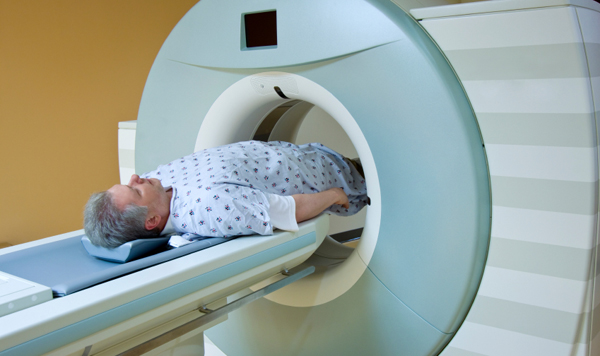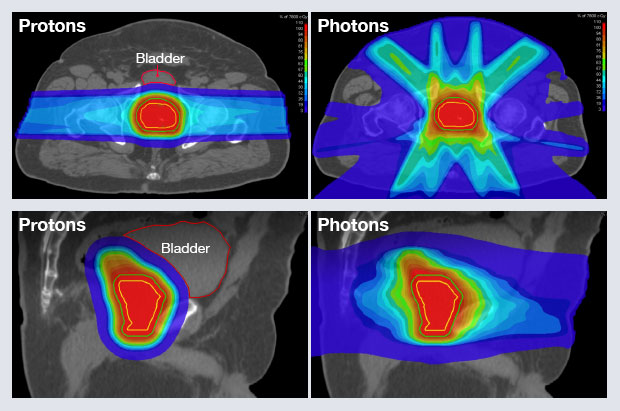Getting The Best Prostate Cancer Hospital In Mumbai To Work
Wiki Article
Prostate Cancer Cells Therapy: Surgical and Non-Surgical Approaches Explained
When faced with a prostate cancer diagnosis, the selection of treatment alternatives can appear overwhelming. From medical treatments to non-surgical methods, each approach lugs its own set of considerations and benefits. The decision-making procedure includes considering aspects such as performance, possible adverse effects, and long-term end results. Recognizing the subtleties of medical techniques, like robotic-assisted surgical procedure, and non-surgical treatments such as radiation therapy and hormonal agent treatment, is important for clients and their family members. This extensive introduction intends to clarify the complexities of prostate cancer therapy, providing insights right into the details of each technique to equip individuals in making informed options regarding their wellness.Surgical Treatment Choices
When thinking about medical therapy alternatives for prostate cancer, clients and health care suppliers usually consider the benefits and dangers associated with various procedures. This treatment is usually advised for clients with localized prostate cancer and offers the potential for a cure.
Another medical option is robotic-assisted laparoscopic prostatectomy, a minimally invasive treatment that uses a robot system to aid the specialist in eliminating the prostate. This technique can result in much less blood loss, much shorter health center stays, and quicker healing times contrasted to typical open surgical treatment. It also lugs the risk of complications such as infection and injury to bordering body organs.
Eventually, the selection of medical therapy for prostate cancer depends on different factors consisting of the stage of the cancer cells, the person's overall health, and their preferences relating to possible side effects and recuperation times. Consulting with a multidisciplinary group consisting of urologists, oncologists, and radiation oncologists can assist people make informed decisions about the most ideal surgical strategy for their specific case.

Non-Surgical Treatment Choices
Taking into consideration choices to medical interventions, non-surgical treatment choices for prostate cancer cells deal individuals additional methods for handling the illness while minimizing possible medical threats. One non-surgical method is Active Monitoring, where clients with low-risk prostate cancer are kept track of carefully via normal exams, blood examinations, and biopsies, without going through immediate treatment. This strategy intends to avoid unneeded therapy and its involved side effects, such as incontinence and impotence.Another non-surgical choice is Radiation Treatment, which uses high-energy rays to eliminate cancer cells (Best prostate cancer hospital in Mumbai). This treatment can be delivered externally using an equipment (Exterior Beam of light Radiation) or inside with tiny radioactive pellets placed near the growth (Brachytherapy) Radiation treatment can be utilized as a key therapy or in combination with various other therapies, such as hormonal agent treatment
Furthermore, Hormonal Agent Therapy is a non-surgical technique that intends to lower the degrees of male hormonal agents (androgens) in the body, as these hormonal agents can sustain the development of prostate cancer cells. By decreasing or blocking androgen levels, hormone treatment can reduce cancer cells progression and alleviate symptoms in advanced cases.
Robotic-Assisted Surgical Treatment for Prostate Cancer Cells

One of the key advantages of robotic-assisted surgery for prostate cancer is its capacity to reduce the danger of complications and adverse effects frequently connected with open surgery, such as blood loss, pain, infection, and expanded recuperation times. People going through robotic-assisted procedures often experience much shorter healthcare facility stays, much less postoperative pain, and much faster return to normal activities. Additionally, the minimally invasive nature of robot surgical treatment commonly results in smaller sized lacerations, causing boosted cosmetic results and minimized scarring for patients. On the whole, robotic-assisted surgical procedure represents an advanced strategy to prostate cancer cells therapy that integrates technological improvements with medical competence to enhance patient end results.
Radiation Treatment for Prostate Cancer Cells
Using innovative radiation innovation, radiation therapy plays a crucial function in the comprehensive treatment of prostate cancer. Radiation therapy uses high-energy radiation to ruin cancer cells and shrink tumors. It is a typical treatment choice for prostate cancer, either as a primary treatment or in mix with surgical procedure, hormonal agent treatment, or radiation treatment.There are 2 major kinds of radiation treatment used for prostate cancer cells: outside beam of light radiation therapy (EBRT) and brachytherapy. In EBRT, a device delivers radiation from outside the body to the prostate. This therapy is generally provided over a number of weeks, with everyday sessions lasting just a couple of minutes (best prostate surgeon in Mumbai). Brachytherapy entails placing radioactive seeds or sources straight into the prostate near the cancerous cells. These seeds send out radiation that eliminates the cancer cells with time.
Radiation treatment for prostate cancer cells is very reliable, with high cure prices, specifically for local cancer. It is likewise a useful choice for patients that may not be ideal prospects for surgery. Like any type of treatment, radiation treatment might have adverse effects, such as urinary system issues, fatigue, and skin irritability, but these are typically temporary and convenient.
Hormonal Agent Therapy for Prostate Cancer
Hormonal agent therapy is a commonly made use of treatment technique for prostate cancer cells monitoring. Prostate cancer cells is frequently fueled by the male hormonal agent testosterone. Hormone therapy, additionally recognized as androgen deprival therapy, intends to minimize testosterone degrees in the body or obstruct the hormonal agent's results on the prostate cancer cells, hence reducing the disease's development. This therapy is especially effective in innovative phases of prostate cancer cells, where surgery or radiation treatment might not be sufficient.There are different kinds of hormonal agent treatment for prostate cancer, including medicines that reduced testosterone degrees (such as luteinizing hormone-releasing hormone agonists and antagonists), or medications that block linked here testosterone from reaching cancer cells (like anti-androgens) Hormone treatment can be made use of alone or in combination with other therapies like radiation therapy, depending on the phase and aggressiveness of the cancer cells.
While hormonal agent treatment can properly control prostate cancer development, it might feature side effects such as warm flashes, view it now loss of sex drive, erectile disorder, and osteoporosis - best prostate cancer doctor. Normal monitoring and conversations with medical care service providers are important to manage these adverse effects and make certain the therapy's performance
Verdict
Finally, the treatment alternatives for prostate cancer consist of non-surgical and surgical strategies such as robotic-assisted surgical treatment, radiation treatment, and hormone treatment. Each strategy has its own advantages and dangers, and the choice of therapy depends on numerous variables such as the stage of cancer cells and overall health and wellness of the patient. It is necessary for individuals to discuss these alternatives with their doctor to determine the most appropriate strategy for their specific situation.
Utilizing innovative radiation technology, radiation navigate to this site treatment plays an essential duty in the thorough treatment of prostate cancer. It is an usual therapy option for prostate cancer, either as a key therapy or in mix with surgery, hormone therapy, or chemotherapy.
Radiation therapy for prostate cancer cells is extremely reliable, with high cure rates, particularly for localized cancer.Hormone treatment is a frequently made use of therapy method for prostate cancer cells administration.In verdict, the treatment choices for prostate cancer cells include non-surgical and medical strategies such as robotic-assisted surgery, radiation therapy, and hormone therapy.
Report this wiki page